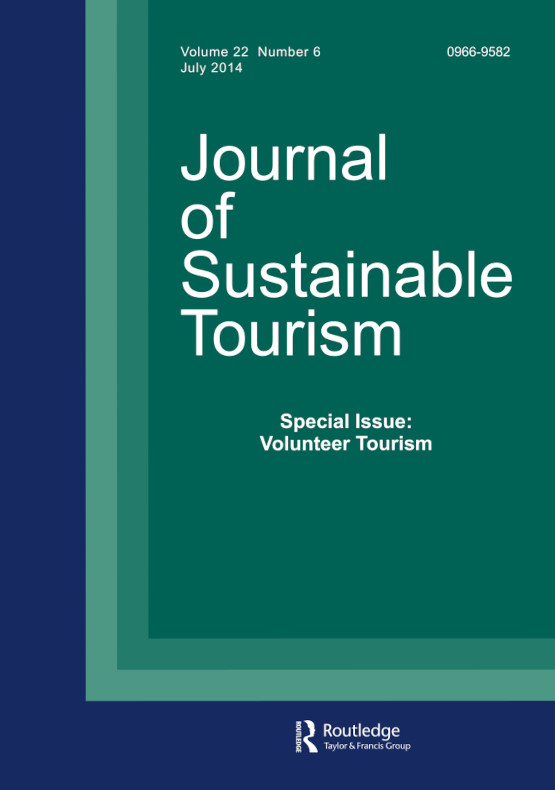Stakeholders’ involvement in an evidence-based sustainable tourism plan
IF 7.8
2区 管理学
Q2 GREEN & SUSTAINABLE SCIENCE & TECHNOLOGY
引用次数: 0
Abstract
AbstractSustainable tourism planning is recommended for destination governance to ensure long-term development that balances the impacts of tourism on a community, especially in overtourism contexts. This study examines a sustainable tourism planning process focusing specifically on stakeholder involvement and the use of co-created evidence. A multi-stakeholder involvement management framework (MSIM) for sustainable tourism was applied to examine its fit to a rigorous case study. The study enhances the MSIM framework, featuring three stages from scene-setting, management of stakeholder involvement, to assessment. The new framework details objectives and tools for each step, and influential factors in managing stakeholders’ involvement. A significant enhancement is the extensive incorporation of evidence into the framework for different purposes (eg developing management policies, plan objectives and implementation tactics, evaluating stakeholders’ involvement). Multiple stakeholders participated in producing and using a variety of evidence throughout the planning process to provide a foundation for planning. This study is one of the first in sustainable tourism to examine evidence as a component of a broad framework to manage stakeholder involvement. It shows the usefulness, position, and dynamic of evidence in destination management.Keywords: Stakeholderstourism policycase studydestination managementmonitoringovertourism Disclosure statementNo potential conflict of interest was reported by the author(s).利益相关者参与循证可持续旅游计划
摘要可持续旅游规划建议用于旅游目的地治理,以确保长期发展,平衡旅游业对社区的影响,特别是在过度旅游的背景下。本研究考察了可持续旅游规划过程,特别关注利益相关者的参与和共同创造证据的使用。应用可持续旅游的多利益相关者参与管理框架(MSIM)来检查其是否适合严格的案例研究。本研究以场景设定、利益相关者参与管理、评估三个阶段为特色,强化了MSIM框架。新的框架详细说明了每个步骤的目标和工具,以及管理利益相关者参与的影响因素。一个重要的改进是将证据广泛地纳入不同目的的框架(例如制定管理政策、计划目标和实施策略、评估利益相关者的参与)。在整个规划过程中,多个利益相关者参与制作和使用各种证据,为规划提供基础。本研究是可持续旅游业中首次将证据作为管理利益相关者参与的广泛框架的组成部分进行研究的研究之一。它显示了证据在目的地管理中的有用性、地位和动态性。关键词:利益相关者旅游政策案例研究目的地管理监测政府旅游披露声明作者未发现潜在的利益冲突
本文章由计算机程序翻译,如有差异,请以英文原文为准。
求助全文
约1分钟内获得全文
求助全文
来源期刊

Journal of Sustainable Tourism
Multiple-
CiteScore
23.10
自引率
8.90%
发文量
91
期刊介绍:
The Journal of Sustainable Tourism advances critical understanding of the relationships between tourism and sustainable development. The journal publishes theoretical, conceptual and empirical research that explores one or more of the economic, social, cultural, political, organisational or environmental aspects of the subject.
The Journal of Sustainable Tourism encourages critical views, as well as new ideas and approaches in relation to the theory and practice linking tourism and sustainability.
 求助内容:
求助内容: 应助结果提醒方式:
应助结果提醒方式:


